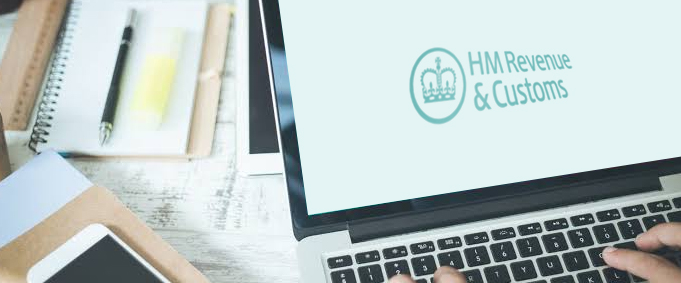Setting up as a sole trader is the simplest route to embark on your entrepreneurial journey. With minimum paperwork, fewer legal complexities, straightforward accounting, and taxation, you get the opportunity to be your own boss (which is pretty exciting, isn't it?). All it takes is following a few simple steps, and you'll be ready to kickstart your business!
1. Choosing the right form of business structure

Before anything else, take a moment to determine if being a sole trader is the best choice for you. If you find yourself torn between a company or sole trader structure, we've got you covered with a blog that will make this decision a breeze.
Blog on Sole trader versus limited company
Blog on Limited Liability Partnership versus Limited Company
Register Business Name
2. Register Business Name
Signing up a business as a sole trader involves the exciting task of choosing a catchy business name. While you can opt for your first and last name, you also have the flexibility to go by a different "trading name". Remember, it's important to include both your name and business name on all official paperwork, invoices, and letters. However, there are a few things to keep in mind when naming your business:
- Avoid using terms like 'ltd.', 'limited', 'plc.', 'public limited company', 'LLP', or 'limited liability partnership'.
- Ensure that the name is not offensive or similar to any existing trademarks.
- Steer clear of using 'sensitive' words or expressions that may imply a connection with the government or local authorities, unless you have proper permission.
- If you want exclusive rights to your business name, consider registering it as a trademark.
By following these guidelines, you can create an engaging and memorable business name while complying with the necessary requirements.
3. Registering as a sole trader with HMRC

To ensure you're in the know, registering as a sole trader for self-assessment and Class 2 and Class 4 National Insurance is crucial if any of the following apply to you:
- You regularly make profits from selling.
- You craft items with the intent to sell them for profit.
- You frequently sell online, at car boot sales, or through classified adverts.
- You earn a commission from selling goods on behalf of others.
- You receive payment for services rendered.+
Ideally, you should register as soon as you commence trading, but no later than 5 October in the second year of your business. Interested in learning how to register for self-assessment as a sole trader? Then, don't hesitate to click here.
However, if your sales are sporadic or you don't anticipate making a profit from selling, you won't be considered engaged in "trading," and you won't be classified as self-employed. Thus, in such instances, there's no need to register as a sole trader.
4. Core responsibilities
Maintaining accurate records of your business's sales and expenses Completing and filing your self-assessment return annually
Paying income tax, as well as Class 2 and Class 4 National Insurance contributions.
5. Record keeping

As a sole trader, it is crucial to maintain detailed records of the following:
- All the revenue and income generated from sales
- All the essential business expenses incurred
- If you are registered for VAT, ensure to keep VAT records as well
- If you have employees, maintain accurate PAYE records
- Also, don't forget to keep records of your personal income
Keeping these records will not only ensure compliance but also help you stay on top of your financial game. So, stay organized and keep track of every penny!
6. Filing of Self-Assessment Tax Return
Make sure to submit your self-assessment tax return by 31 October if you're filing a paper return, or by 31 January of the following year if you're filing online. Don't forget, you need to settle your tax bill by 31 January as well.
For instance, let's say it's the tax year from 6 April 2018 to 5 April 2019. If you prefer paper filing, make sure to do it before midnight on 31 October 2019. If online filing is your choice, you have until midnight on 31 January 2020. Also, remember that the tax payment is due by 31 January 2020 in both cases.
7. Other Registrations
National Insurance Number:
Calling all sole traders! If you're looking to level up your game, here's what you need to know. First things first, let's talk about National Insurance. If you're 16 or older and self-employed, paying National Insurance is a must. You'll need a National Insurance number for that, so make sure to ring up the National Insurance number application line at 0800 141 2075 to get yours.
PAYE Registration:
Now, let's dive into PAYE registration. Once you start hiring staff, it's time to register as an employer with HMRC. Don't worry, it usually takes around 5 days to receive your employer PAYE reference number.
PAYE Registration:
Now, let's dive into PAYE registration. Once you start hiring staff, it's time to register as an employer with HMRC. Don't worry, it usually takes around 5 days to receive your employer PAYE reference number.
VAT Registration:
Next up, we have VAT registration. If your VAT taxable turnover exceeds £85,000, it's time to get registered. Once you're in the VAT club, you'll need to charge the right amount of VAT, pay your dues to HMRC, and keep those VAT records in check. And hey, have you heard of Making Tax Digital (MTD)? It's a game-changer, so click here to learn more about it.
Construction Industry Scheme:
Last but not least, the Construction Industry Scheme (CIS). If you've got a unique taxpayer reference (UTR), you can register for CIS online with your Government Gateway user ID and password. No UTR? No problem! Just register as a new business for self-assessment and choose 'working as a subcontractor.' You'll be registered for both self-assessment and CIS. Need a helping hand? Give the CIS helpline a buzz at 0300 200 3210 to get you sorted. Good luck and rock on!
READY, STEADY, GO…

In this article, we aim to present an informative guide outlining the necessary legal requirements when establishing yourself as a sole trader. Starting a business as a sole trader is a straightforward process compared to other forms, with only a few legal obligations to fulfil before you're ready to get going…
If you encounter any obstacles along the way, don't hesitate to reach out to us. Our team is eager to provide you with assistance!













